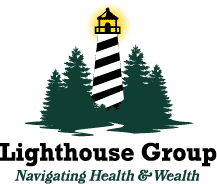If you’ve missed open enrollment health insurance, you might feel uncertain about your options. Fortunately, there are still paths available to secure coverage. This article will guide you through the missed open enrollment health insurance options and steps to ensure you and your family are protected, even if you missed the deadline.
For those who missed open enrollment health insurance, options include special enrollment periods triggered by qualifying life events, health shares, and other alternative coverage methods that offer more flexible enrollment windows.
Table of Contents
Key Takeaways:
- Recognizing and leveraging SEPs after a qualifying life event ensures you can still secure health insurance coverage.
- Health shares and other alternative coverage methods offer flexible and often more affordable options outside of traditional insurance.
- Assessing your situation, researching options, and acting quickly can help you secure health insurance even after missing the open enrollment period.
- Proactive planning and staying informed about key dates and options can prevent missing open enrollment in the future.
These solutions can help you navigate the complexities of securing health insurance after missing the open enrollment window. Keep reading to explore each option in detail and learn how to make the best choice for your needs.
Understanding Special Enrollment Periods and Qualifying Life Events
Missing open enrollment can feel overwhelming, but special enrollment periods (SEPs) offer a key opportunity to secure health insurance outside the regular window. SEPs are triggered by qualifying life events (QLEs), such as marriage, divorce, the birth or adoption of a child, losing other coverage, or moving to a new area with different plan options. These events allow you to enroll in health insurance if you missed open enrollment health insurance. It’s important to act quickly, as you have a 60-day window to apply after the qualifying event. Failing to do so could leave you uninsured until the next open enrollment.
According to a report by Urban.org, roughly 12.9 million people could enroll using SEPs each year, with 9.7 million qualifying due to job loss. SEPs are crucial for maintaining health protection after significant life changes. To use a special enrollment period, document your qualifying life event with paperwork such as a marriage or birth certificate. Then, visit the health insurance marketplace or your provider’s site to compare plans based on your needs and budget. Understanding SEPs ensures you maintain coverage during transitional periods if you missed open enrollment health insurance.
Consider Health Shares and Alternatives for Missed Open Enrollment Health Insurance
If you’ve missed open enrollment health insurance and are seeking alternatives, health shares or other non-traditional options might be worth exploring. Health shares are community-driven programs where members contribute to a pool that covers each other’s medical expenses. These programs are typically faith-based and not regulated like traditional insurance, offering flexibility but with different rules regarding coverage. According to a report from the Colorado Division of Insurance, more than 1.7 million Americans rely on health share plans, though many of these programs require members to seek charity care before submitting bills. Health shares often have lower monthly contributions and provider flexibility but may not cover pre-existing conditions or preventive care.
Beyond health shares, other alternative coverage options include discount health plans or direct primary care memberships. These alternatives can help reduce medical costs but may lack the comprehensive coverage of traditional insurance. Exploring these options provides flexibility for those who missed open enrollment health insurance and need affordable solutions.
Steps to Take If You Missed Open Enrollment
Assess Your Situation
The first step after missing open enrollment health insurance is to assess your situation and determine the reasons for the missed deadline. It’s essential to understand whether you qualify for a special enrollment period (SEP) triggered by a qualifying life event, such as a change in marital status, the birth or adoption of a child, or losing employer-provided health insurance. Identifying these events can help you enroll outside of the standard open enrollment period and avoid gaps in coverage.
Research Your Options
Once you’ve assessed your eligibility, it’s time to research the available options. Health shares provide alternative coverage for those seeking a more community-driven approach, while discount health plans and direct primary care memberships are also worth exploring. According to a report from the Centers for Medicare & Medicaid Services, more than 2.5 million Americans gained health coverage during the 2021 special enrollment period. This shows that SEPs are a critical path for those who missed open enrollment health insurance, ensuring many can still secure essential coverage.
Act Quickly
If you qualify for an SEP due to a qualifying life event, it’s important to act quickly. Special enrollment periods have a limited window, usually 60 days from the qualifying event, during which you can enroll in a new health insurance plan. Missing this window could result in being without coverage until the next open enrollment period. Acting promptly ensures you avoid potential gaps in coverage and protects your health.
Seek Professional Advice
Navigating health insurance options after missing open enrollment can be overwhelming. If you’re unsure which option is best, consulting with a professional health insurance advisor can provide valuable insights. An advisor can help you evaluate your eligibility for an SEP, explain the pros and cons of different coverage options, and guide you through the enrollment process. Their expertise can simplify the complexities of health insurance, ensuring you make an informed decision and secure the coverage that best fits your needs.
By following these steps, you’ll be better prepared to secure health insurance, even if you missed open enrollment. Taking proactive measures ensures you have the necessary protection and peace of mind for both your health and financial well-being.
How to Avoid Missing Open Enrollment Again
After navigating the challenges of missed open enrollment health insurance, it’s important to plan ahead to avoid missing future periods. Set reminders for key dates and stay informed about changes in health insurance regulations, including employer provided life insurance. Regularly review your health insurance needs, as both your health and financial situation may change. Whether you rely on employer provided life insurance or individual coverage, ensure your plan is still suitable during each open enrollment. Consulting an insurance advisor can provide valuable guidance and help you avoid missing critical deadlines in the future. Proactive planning will ensure you stay covered without the stress of last-minute searches for coverage.
Securing Your Health Insurance After Missed Open Enrollment
Missing open enrollment doesn’t mean you’re out of options. By understanding missed open enrollment health insurance options, such as special enrollment periods and health shares, you can still secure the coverage you need. Planning ahead and staying informed about future enrollment periods will help you avoid this situation again. Assess your needs, explore available missed open enrollment health insurance options, and act quickly to protect your health and financial well-being. With the right steps, you can find the coverage that best suits you and your family.
Ready to explore your health insurance options after missing open enrollment? Contact Lighthouse Group now to learn more about our services and schedule a consultation. Let us guide you to the right solutions for your health coverage needs.
What happens if I miss the special enrollment period after a qualifying life event?
If you miss the special enrollment period after a qualifying life event, you may have limited options for securing traditional health insurance. In this case, you can consider alternative coverage options like health shares. These alternatives can provide temporary or partial coverage until the next open enrollment period. It’s essential to act quickly when a qualifying life event occurs to avoid gaps in your coverage.
Can I still get financial assistance if I missed open enrollment health insurance?
Yes, you may still qualify for financial assistance if you’re eligible for a special enrollment period due to a qualifying life event. During an SEP, you can apply for subsidies or tax credits that help lower the cost of your health insurance. Financial assistance options may not be available for alternative coverage like health shares. It’s important to explore all available options to find the most affordable coverage.
Are there penalties for missing open enrollment for health insurance?
Currently, there is no federal penalty for missing open enrollment for health insurance under the Affordable Care Act (ACA). However, some states have their own individual mandates that require health coverage, and penalties may apply if you don’t have insurance. Additionally, going without coverage can lead to higher medical expenses in case of an emergency. It’s crucial to explore your options, such as special enrollment periods or alternative coverage, to avoid any potential penalties or financial risks.









